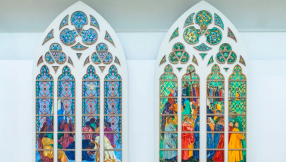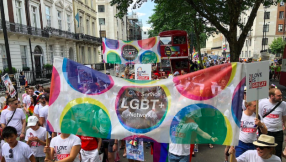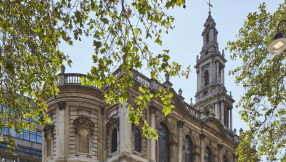The Government should ditch its plans to redefine marriage
As the Government continues to consult on plans to change the law to include same-sex couples in the definition of marriage, C4M told Christian Today why the Government has got it wrong.
CT: Why is legalising marriage so important?
C4M: We believe that the current definition of marriage should be maintained and we believe that position is backed by the majority of people in this country. In a ComRes poll, 70% of people said that the current definition of a union between one man and one woman should be maintained. Part of the problem with the Government’s consultation is that it is very lacking in detail. They say it will only affect civil marriage but there is no such thing in law as civil marriage, there is just marriage.
A concern that seems to have been borne out by a recent case in the European Court of Human Rights is that if you go down the route that is advocated by the Government there will be no protection for churches, synagogues, mosques or other religious institutions that do not want to go down this road.
But of course it’s not just about religion and religious institutions. This would have a very profound effect on the UK, on legislation, on the education system and the legal requirement to teach marriage to children. The question arises: if you have a faith school or teachers who are either religiously or philosophically opposed to teaching about gay marriage, will they be exempt? What protections are there for them? What is there for the children themselves and for parents who do not feel it is right? What is the government going to do to protect those people?
CT: Would you say the proposal is undemocratic?
C4M: Yes, but we would go further than undemocratic. It is profoundly undemocratic. The government has pushed forward this agenda without an electoral mandate and we keep stressing that this was not in the manifesto of any of the three main parties at the last election. They are rushing this through without proper debate, without the consent of the British public, and against the backdrop of many religious leaders, ethicists and legal experts who are saying that the Government has not thought out these plans and should therefore ditch them.
What has been deeply concerning is that the consultation – which we believe is a sham consultation – does have a question in it about whether or not people believe that the Government should redefine marriage but it has already been made clear by the Equalities Minister [Lynne Featherstone] that she will not pay any attention to that and worse than that, she plans to push on with this radical reform without anyone being able to hold her back. It is a crazy situation.
CT: Why do you think the Government appears to be ignoring opposition?
C4M: The Government sees this as a modernising totem against the backdrop of austerity measures and cuts to public services. This is a way for the Government to say, well, look at what a very trendy, progressive Government we are. Well no, it’s not. Marriage is an incredible institution that predates this Government and predates the Christian church. It has been the foundation of the most successful human societies for the last few thousand years in the form of a lifelong commitment between one man and one woman. The Government seems hell bent on doing away with all that. It is just crazy.
CT: The reform has been touted as bringing in some of the most advanced equality laws anywhere in the world.
C4M: In terms of the most advanced equality laws, well, actually the European Court of Human Rights said recently that marriage is not a human right and that if this change is made, it would force all religious institutions to have to radically alter and redefine their understanding of marriage and perform gay marriage ceremonies. It is not really equal if you are suddenly dictating to millions of people what they can and cannot do or think.
The Government should be talking about the real issues. They should be talking about family breakdown and how they can support couples and strengthen people in relationships, whether in civil partnerships or marriage, not smudge the picture and say they will redefine marriage. There isn’t an agenda for redefining marriage and that is why it is completely wrong.
CT: Your petition has passed 400,000 signatures. Are you surprised by the level of support?
C4M: We are absolutely delighted by the level of response. When we started we wanted to get as many signatures as possible but I don’t think anyone expected this level. But sadly, people who are opposing this change are being vilified and all sorts of unpleasant words and names are being used. The Archbishop of York said he opposed the change and received racist hate mail. David Burrowes, MP for Enfield Southgate, a very mild and gentle man, received death threats when he said he opposed the redefinition of marriage. The importance of marriage is revealed by the fact that so many people have a) signed it and b) high profile people are willing to put their name to the petition despite fear of being vilified in such an unfair fashion. It is incredible when you look at it. All they are doing is supporting the existing law that has been in existence for the last two millennia.
CT: Do you think we need to have a conversation about that?
C4M: It is so sad, obviously there are important issues that need to be discussed here. We are keeping our message very simple and we’ve got a petition that we don’t think anyone can find offensive. Yet our supporters have been vilified.
CT: What about the words of Equalities Minister Lynne Featherstone, who accused Church leaders of “fanning the flames of homophobia”?
C4M: There are some people trying to frame this debate as either the Christian camp or the equality/gay rights camp. In fact the picture is far more complicated and complex than this.
In a Washington Post interview, (the openly gay) Labour minister Ben Bradshaw said this was not a priority for the gay community and that there are many gay people who do not support this. He is someone who was in government at the time civil partnerships were pushed through and gave gay couples the same legal rights as married couples. People who have signed the petition include atheists and people with no particular religion.
To try to paint people who oppose the redefinition of marriage as either some form of religious fundamentalist or a homophobe is disingenuous and is a demonstration that these people have very, very poor arguments and have lost the debate. If there are real reasons for this change i.e. civil partnerships do not provide the legal rights that are provided to married couple, then let's talk about that. Let's not sling cheap and hateful insults at people.
CT: Given that the Government has more or less decided to go ahead with gay marriage regardless of the opposition, what are the chances of this not coming into law now? What avenues are left open to opponents?
C4M: What we have been very cheered by is the success of petitions like the one led by the National Trust. It received around 230,000 signatures and achieved substantial changes in planning legislation. It was an amazing campaign that put forward very measured arguments about the impact of the proposed changes and got very radical reforms. We hope we can emulate their success and their example by making sure that our arguments are academically rigorous, well founded and measured, so that we can convince the Government to drop these very hasty and ill thought out plans.













